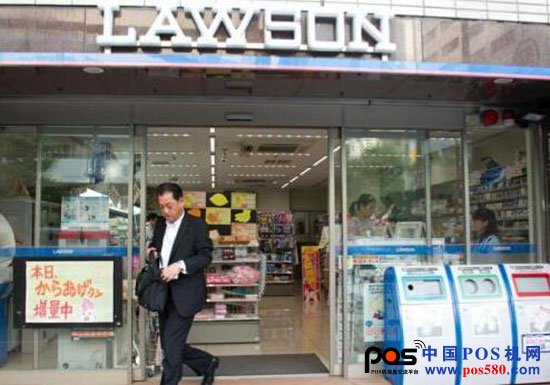According to foreign media reports, Japan's 7-11 and five large convenience store chains, including the whole family and Rosen, will introduce self-checkout registers for consumers to check out their own stores in all domestic stores by 2025.

The convenience store in Japan plans to use the IC tag that can read the product information in the shopping basket in a unified manner, and it is convenient for customers to check out, and can share information about sales status with product manufacturers and logistics companies.
The IC label has a thickness of less than 1 mm and is embedded in the package of the product. Using a technology called RFID (Radio Frequency Identification), it is possible to write product information and read the information content by means of a machine.
Consumers who shop at convenience stores simply place the item in a shopping basket and bag and then place it on the checkout counter with a dedicated machine.
Japan's five convenience store chains do not have to deal with different standards for suppliers by using common IC tags. The Ministry of Economy, Trade and Industry of Japan expects that the supermarkets and drugstores under each company can also expand this approach.
The tag can also be written to the date of manufacture, factory and shelf life. It can be browsed remotely, and the manufacturing company can keep track of the sales status of the products at any time.
In 2017, the Ministry of Economy, Trade and Industry will launch an association of convenience stores, IT companies, food companies and logistics companies. After 2018, the convenience store chain will start self-service cashiers from stores in urban areas such as the Tokyo metropolitan area.
The current difficulty lies in the production cost of IC tags. In the convenience store of the product, it is an obstacle to the introduction. In order to promote technology development and mass production, the Ministry of Economy, Trade and Industry of Japan will promote the popularization through measures such as subsidies for label development companies.
Japanese media said that Japan is also striving to use this to resolve the growing labor shortage and improve the efficiency of the circulation industry.
In addition, according to Japanese media reports, in order to realize the industrialization of artificial intelligence (AI), the Japanese government has developed a road map. The plan is to promote the use of AI to significantly improve manufacturing and logistics industries in three phases. In the logistics industry, such as express delivery, which is short of manpower due to the expansion of the online shopping market, it will use trucks for automatic driving and small drones, "to strive to achieve complete unmanned by 2030."
It was so worth it to switch from plastic to glass! No more stains, no more scratches, no more replacing worn plastic containers every year! These are the containers we use for leftovers. We usually cook enough dinner for lunch the next day, so hot meals go straight to dinner plates and then into lunch containers. These are also easy to clean, I leave the meal boxes anywhere in the dishwasher, but I usually wash the LIDS by hand. If cleaning is required, the sealing ring inside the cover can also be removed.
Plastic Lunch Box,School Lunch Box,Glass Lunch Box,Plastic Lunch Containers
SY INTERNATIONAL (CN) CO.,LTD , https://www.syplasticbox.com